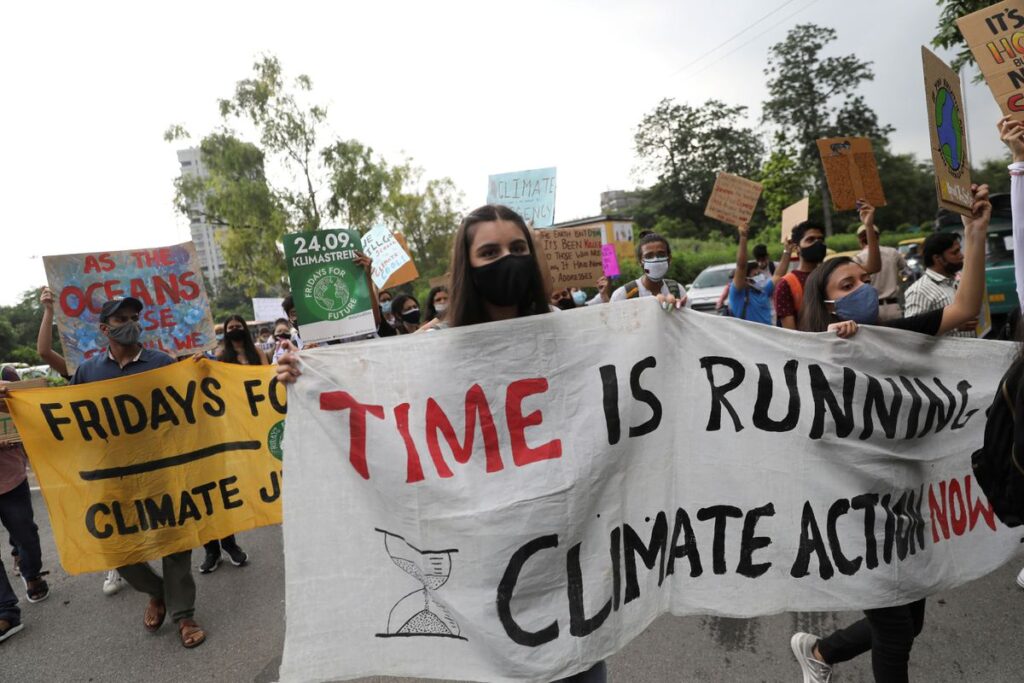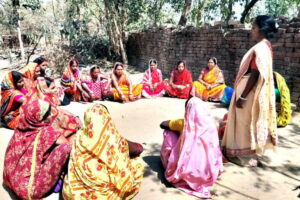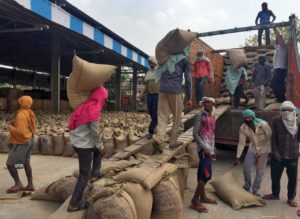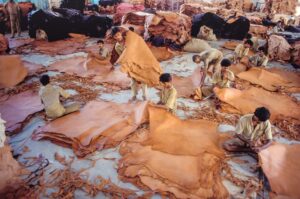Two Billion People Will Struggle To Survive In A Warming World: Study

FILE PHOTO: People hold banners and signs as they take part in a march calling for urgent measures to combat climate change, in New Delhi (Reuters)
Two billion people will find themselves living in dangerously hot places this century if global warming reaches 2.7℃, research released recently reveals.
The authors calculated how many people would be left outside the “human climate niche” by 2100. The niche is defined as places with an average temperature of about 13℃, or about 27℃ in the tropics. Human population has historically peaked in these areas.
The world is on track for 2.7℃ of warming by 2100. This would push a third of people on Earth outside the human climate niche. This includes people in parts of northwest Australia such as Darwin, Broome and Port Hedland. It also includes parts of Southeast Asia, India, Africa and South America.
Limiting warming to 1.5℃ would substantially reduce the number of people exposed, including most of those affected in northwest Australia.
Below, we discuss the broader implications of these globally significant findings.
What Is The Human Cost Of Global Warming?
The research calculated the number of people outside the “human climate niche” under different demographic scenarios and levels of warming. Exposure to unprecedented heat was the main factor pushing people out of the niche.
This includes an average temperature greater than or equal to 29℃, as well as a high number of days with a maximum temperature above 40℃ or in humid places, with a wet-bulb temperature greater than 28℃. The wet-bulb temperature (as opposed to the standard dry-bulb temperature) reflects humidity and is a method used to measure heat stress. That’s because it’s the point at which sweating is no longer effective as a means of cooling.
The study says a wet-bulb temperature of 35 ℃ can be fatal, especially for vulnerable people, because the body can no longer cool itself.
Above the present level of about 1.2 ℃ global warming, the authors found exposure to unprecedented average temperatures increased markedly, along with increased exposure to temperature extremes.
But 2.7 ℃ of warming threatens a third of the world’s population. Almost the entire area of some countries, such as Burkina Faso and Mali in West Africa, would be exposed to unprecedented heat.
Why Is Warming A Health Hazard?
Just last week, the World Meteorological Organization predicted global surface temperatures would rise to record levels within the next five years. The temperature is also likely to temporarily climb 1.5℃ above pre-industrial levels.
This spells trouble for human health. Even incremental warming increases exposure to health hazards including potentially deadly heatwaves, infectious diseases and diet-related health issues.
Let’s be clear. A 1.5℃ world will result in injury and death, particularly for people in Asia and Africa. Importantly, the people most at risk will be the least capable of protecting themselves: children, the elderly and those with existing health conditions.
To date, the Earth’s average surface temperature has warmed 1.2℃ above pre-industrial levels. We must enact ambitious climate policies now if we are to change our dangerous trajectory.
For too long, we have focused disproportionately on the economic costs of climate action for current – often wealthy – groups at the expense of considering the economic costs of inaction for all, including future generations.
Historically, health has rarely been included in these economic assessments, much less ethical considerations. Emissions reduction policies need to consider health and equity issues, and in doing so can provide governments with a strategic rationale to act.
How Can Extreme Heat Harm Health?
There are multiple ways in which climate change can harm human health. Extreme heat can have direct effects, such as dehydration and heat stroke. Groups most at risk include the elderly and those already unwell.
Extreme heat can also harm mental health, increasing rates of injury and death by aggravating existing mental illness. Beyond direct effects, heat can affect health by influencing, for example, agricultural productivity, water security and air quality.
There are physiological limits to adaptation, particularly to heat. These limits can have negative consequences for labour productivity, especially for outdoor workers, and for health service demand, leading to increased hospital admissions, emergency department visits, and ambulance calls.
Pursuing adaptation measures in an effort to reduce the harmful effects of existing climate change is vital, but to protect the health of all, it is critical that we pursue strong emissions reduction measures.
(Published under Creative Commons from The Conversation. Read the original article here)





